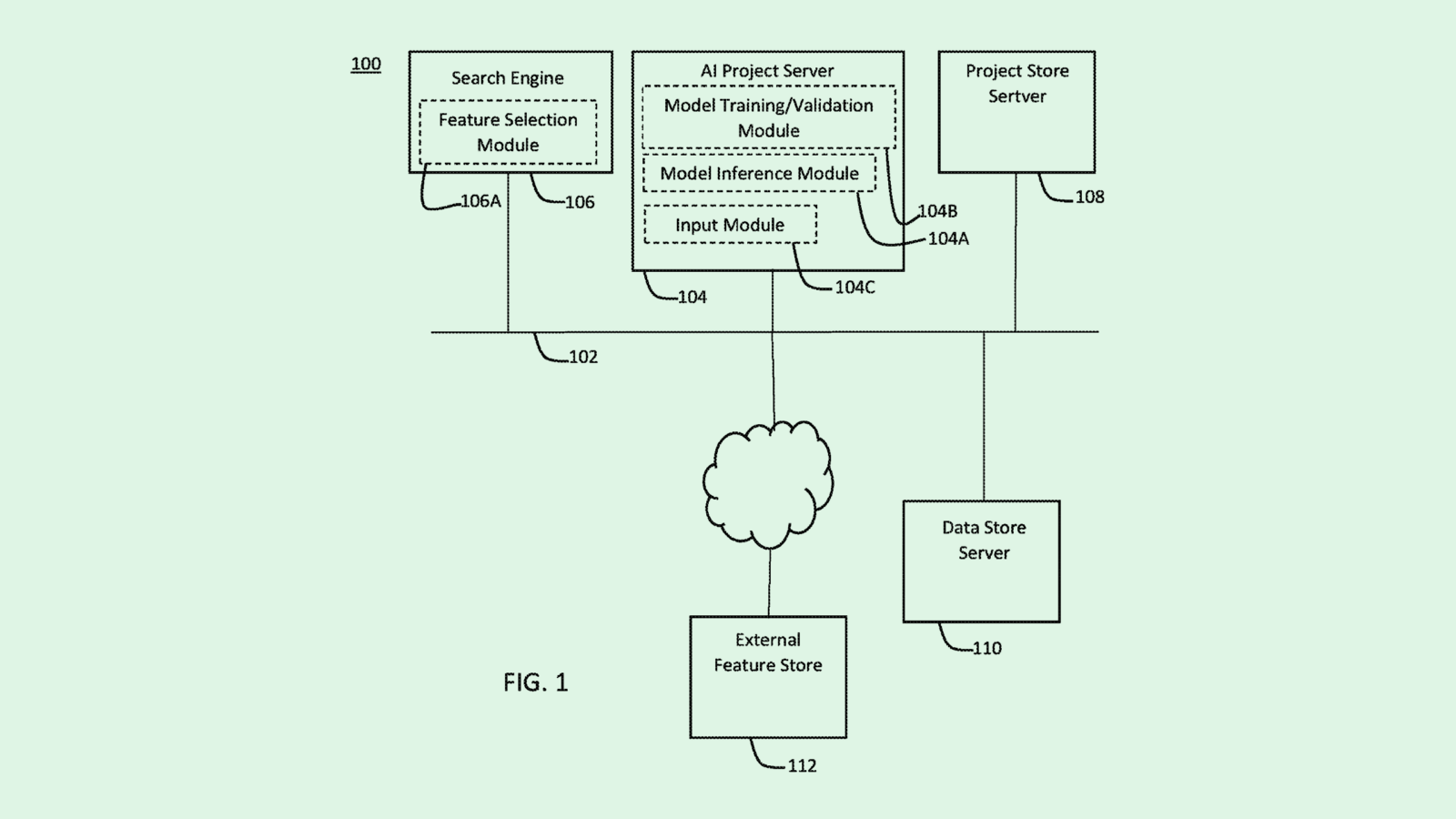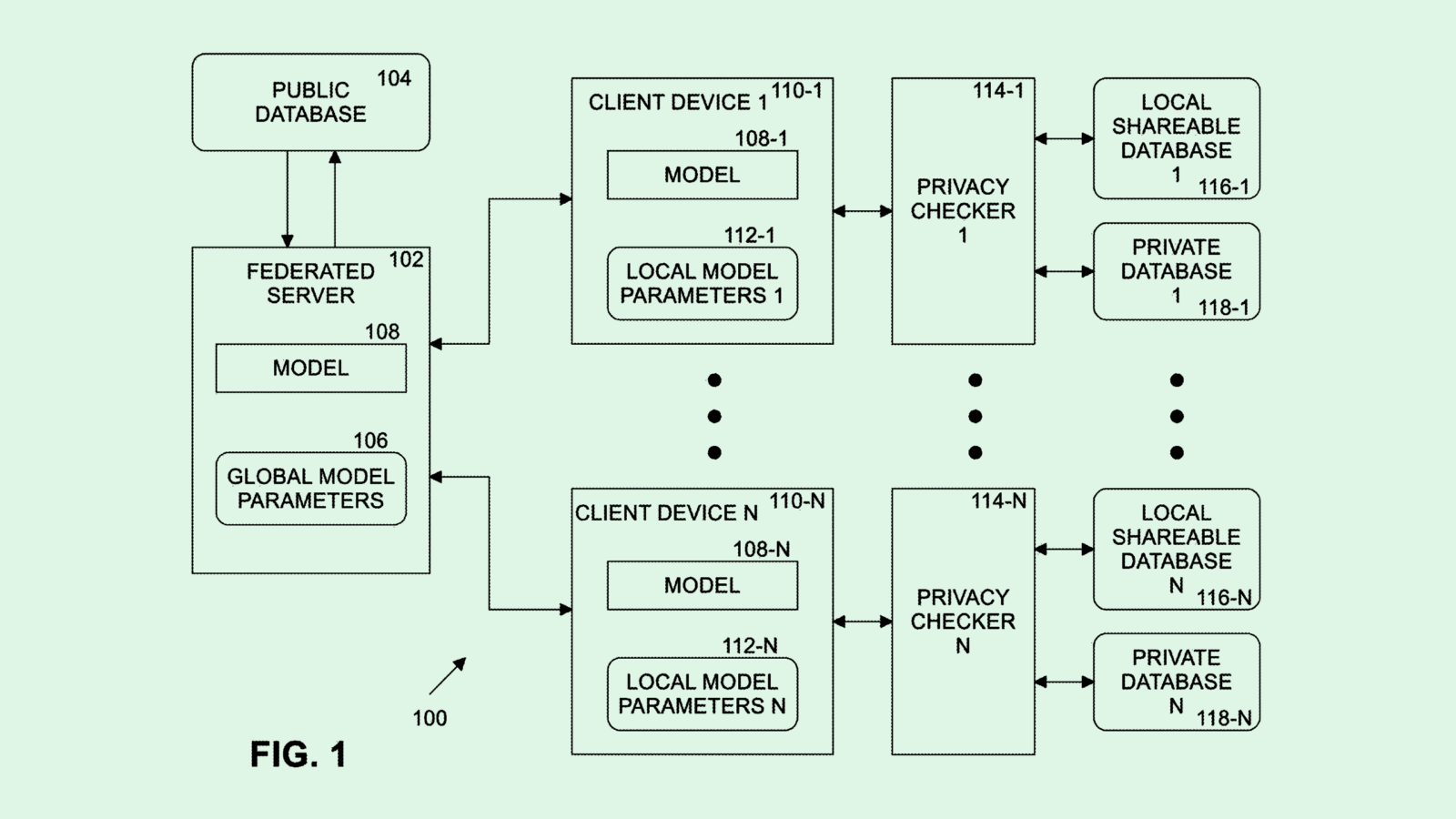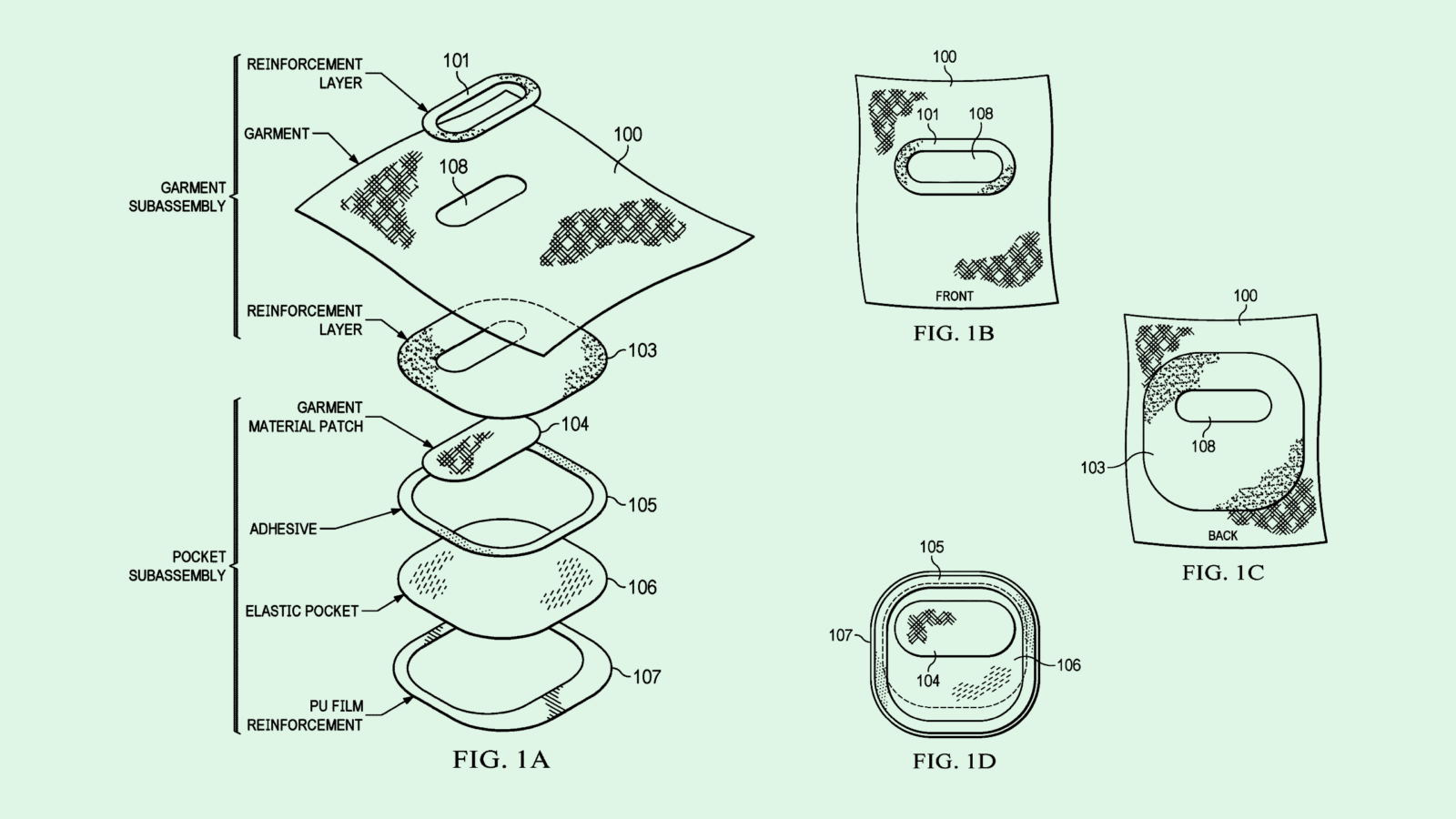Happy Monday and welcome to Patent Drop!
Today, A patent from Mastercard aims to make model development quicker and easier as financial services companies rush to keep up in the AI race. Plus: Intel wants to protect personal data in the Internet-of-Things, and Humane may want to hide its AI Pin from view.
But before we jump into it, a quick word from our sponsor: Sick of the spam calls that fill your call log? A big source of this type of junk solicitation is attributable to data brokers, who wreak havoc on our digital privacy by mining and selling personal information to the highest bidder. The good news is — you can reclaim your privacy (and peace) with Incogni. Patent Drop readers can get 55% off by entering code TDU55 at checkout.
Let’s check it out.
Mastercard’s Low Effort AI
Mastercard may be looking at ways to take the work out of AI development.
The financial institution seeks to patent a system to “automate development of AI projects.” This tech aims to take work from previous AI projects and use it for other projects that may have common goals.
“Multiple artificial intelligence projects often share a common pattern and, as a result, the features generated for these different projects share a common pattern,” Mastercard said in the filing. Leveraging that can save time, money, and resources that would otherwise go toward doing redundant work, the company noted.
Mastercard’s tech involves two kinds of databases, one for datasets and another for past projects. On the user end, this system would include a search engine allowing users to describe what they’d like out of their AI project, which helps the system pick out which previous projects to pull from.
The final piece of this invention is the “artificial intelligence project server,” which oversees the creation and development of new AI projects using the data or features from previous work. This server includes a model training and validation module, which oversees the “creation, training, and validation of neural network-based models within new AI projects.” Once this is done, the completed model is added back to the project storage database.
Overall, this tech oversees an AI project from start to finish with minimal work needed on the user end and uses minimal resources

Mastercard announced plans late last month to use AI to track down compromised cards before they get into cybercriminals’ hands. Its new tech cracks down on the practice of card skimming, in which credit card numbers are stolen and placed on illegal websites.
Mastercard will use predictive generative AI to scan transaction data across billions of cards and merchants, aiming to “double the speed at which it can detect potentially compromised cards.” The company claims this can reduce false positives in fraud detection by up to 200%.
The financial services industry is ripe for AI innovation, and Mastercard is just one of several firms that have recognized its potential. Companies like Visa, PayPal, and JPMorgan Chase have also sought patents that seek to use AI for a range of capabilities, including fraud detection, due diligence, and personal finance tools.
This tech can also help with “back-office operations,” said Tejas Dessai, research analyst at Global X ETFs, including “categorization, improving lending processes, optimizing payment processes, underwriting, and more.”
And while AI is a natural fit for tracking down fraud or automating tedious tasks, access to data that companies like Mastercard have may present a much more lucrative opportunity: consumer targeting.
AI’s biggest strengths are prediction and pattern recognition. By analyzing user payment history, these companies can “leverage AI to tailor these perks to individual consumer needs and preferences better,” said Dessai.
“Financial services platforms with a consumer-facing presence could leverage AI to gain deeper insights into consumer preferences and improve monetization through avenues such as targeted advertising,” Dessai added.
Stop Spam Calls at the Source
You know those infuriating calls trying to convince you there’s an issue with your car warranty? The ones that send even the most zen among us into an expletive-filled rage?
If you want to stop them, you have three options:
1) Throw your phone into the ocean
2) Block unknown callers – but keep having to comb through spam voicemails
3) Stop spammers from getting your number in the first place with Incogni
We highly recommend option 3, and not just because electronic garbage is bad for aquatic life.
Incogni’s automated personal information removal service can sniff out the data brokers providing your info to the scammers – then force them to remove it. Plus, Incogni will reduce the number of spam emails in your inbox.
Intel’s Federated Security
Intel wants to make sure that AI training data is under lock and key.
The company filed a patent application for “mitigating private data leakage in a federated learning system.” Federated learning is a type of machine learning in which one central model is trained and shared across devices and servers without sharing the training data itself.
Local data collected via these devices is also used for training. While the original training data from the central server isn’t private or sensitive, the data collected from the distributed devices may be, Intel noted.
“Data utilized for training only at the client device may be inferred or reconstructed back at the centralized federated server, potentially leading to privacy violations and/or data leakage problems,” the company said.
Intel’s system aims to protect any private data collected locally by blurring the lines. When training the model on “local shareable data,” or non-private data that can be shared, the parameters created during that process are “obscured” by adding “noise,” which makes it difficult to pick out sensitive data from the parameters. Those parameters are then sent back to the main server to contribute to the overall model.
Next, the global model is modified in a way that allows it to classify private data, using those obscured parameters. In this process, a “privacy checker” is added “on top of the global model to help identify private data.” Finally, the model is trained on local private data without the risk of that data being leaked or compromised.
Since federated training techniques are useful in Internet-of-Things contexts, this patent takes an extra step to protect data that may be collected on any distributed device, whether it be a smart speaker, a connected vehicle, or industrial robotics.

While the AI industry has set its sights on making large language models even larger, it’s often forgotten that AI already exists all around us, said Pakshi Ragan, VP of product at AI data security company Portal26.
“A lot of AI that we actually see in our daily life is federated learning,” said Ragan. “It’s what we see in Alexa and Siri, stuff that’s actually in our living room, even in driverless cars.”
Those devices are only getting smarter, as evidenced by companies like Meta, Apple, Google, and Microsoft filing a bevy of patents over the last year to make AI assistants and speakers even more capable.
And despite the prevalence of the devices, there are still a lot of unknowns about how these firms treat your data, said Ragan. “We live in a world where we assume these big companies are going to do the responsible thing, but they may or may not,” he said. “So I think a patent like this starts to bring more attention to best practices.”
Privacy-preserving tech like this is vital given that AI training already presents data security risks if not done properly. Intel’s tech intends to put safeguards in place to protect the data collected by the AI that runs our day-to-day lives.
Intel has taken on AI privacy in its patents in the past. Some of its previous applications include a way to preserve privacy in voice assistants and a filing for
“secure model generation and testing.” Intel’s main business is selling “shovels in a gold rush,” said Ragan, referring to its chips. As Internet-of-Things devices get more capable, collect more data and thereby present greater risks that require privacy checkers, Intel, in turn, sells “beefier” chips, said Ragan.
Plus, while the company lags behind Nvidia and AMD in the AI chips race, researching tech that focuses on safety and ethics could help it differentiate itself in a crowded market that’s largely focused on growth at all costs.
Humane’s Pocket Protector
Humane may be looking to give its AI Pin some fashion tips.
The startup filed a patent application for a “pocket assembly” that integrates the AI Pin, its critically panned $700 flagship device which debuted in November, into garments. This short and sweet patent describes a pocket that essentially hides the device from view while a user is wearing it, without obstructing its ability to function.
Concealing a device in a shirt or pants pocket for “practical or cosmetic purposes” generally interferes with its functionality, Humane said, “requires the user to remove the device from the pocket or accessory to interact with the device.”
This pocket would include a “lozenge-shaped cutout” where the device’s sensors, microphones and camera could peek through, as well as reinforcement layers to provide “stiffness” and prevent it from moving around or sagging. While the pin’s main touchpad is concealed, the pocket would allow for minimal “capacitive touch functionality” on certain parts of the device. The pocket’s elastic would also stretch to fit different sizes of devices.
The company noted that “adhesive” would secure this entire assembly together. However, It’s unclear whether or not you need amateur sewing capabilities to attach this pocket to your own clothes or if Humane plans on starting a fashion brand.

Humane spent years building up anticipation and excitement — and $230 million in funding from some of the biggest names in tech — for its first device. After five years, the company finally debuted this device: a sleek square pin, smaller than a post-it note, that users attached to their shirt.
Despite Humane’s grand ambitions that this device could replace a user’s phone, as reviews started to roll in, critics discovered more than a few issues with the futuristic pin. Many reported lags in responses, misunderstood inputs, and difficulty using the projection feature in sunlight.
Form factor, the hardware packaging of the device that this patent aims to conceal, didn’t often come up as an issue. In his controversial review of the device posted in April which received 7.6 million views, YouTuber Marques Brownlee called the hardware impressive. “You can tell that a lot of effort was put into the craftsmanship of this product,” Brownlee said. “It’s the best part of the pin, by a lot.”
But it may be up in the air whether future iterations of the AI Pin or a high-tech little pocket that goes along with it, ever see the light of day. The company is reportedly looking for a buyer following the flop of its debut device. According to Bloomberg, the company is seeking a price of between $750 million and $1 billion. Prior to launching the AI Pin, the company was valued at $850 million by investors last year.
Extra Drops
- Cloudflare wants to keep you from falling for scams. The company is seeking to patent a system for “phishing email campaign identification.”
- Google wants to be a DJ. The company filed a patent application for a system for “determining playlist coherence and quality.”
- Lyft wants to make sure you don’t get ahead of your skis. The company wants to patent a system for configuring the brakes of “personal mobility vehicles” (a.k.a. electric scooters) based on location.
What Else is New?
- Nvidia unveiled its new AI chip on Sunday, called the “Rubin,” ahead of the the COMPUTEX tech conference in Taipei.
- Microsoft will invest $3.2 billion in Swedish data centers and cloud facilities, aiming to tap the country’s large supply of green energy.
- President Joe Biden vetoed a crypto custody bill which could have overturned the way the SEC approached banks and digital currency.
Patent Drop is written by Nat Rubio-Licht. You can find them on Twitter @natrubio__.
Patent Drop is a publication of The Daily Upside. For any questions or comments, feel free to contact us at patentdrop@thedailyupside.com.

